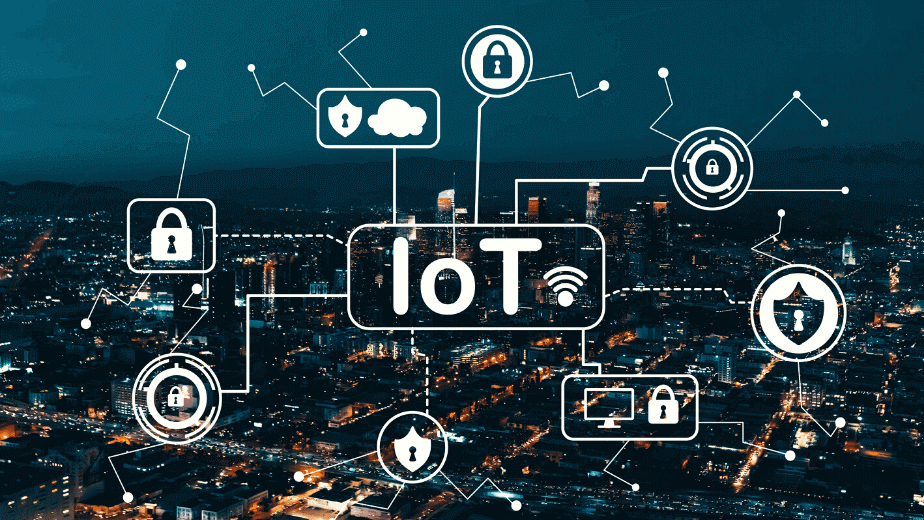In today's rapidly evolving digital landscape, IoT device remote job opportunities have become increasingly significant for professionals in various industries. The Internet of Things (IoT) has revolutionized the way we work, enabling seamless connectivity and remote operations. As businesses embrace this technology, the demand for skilled professionals who can manage and optimize IoT devices remotely continues to grow.
With the rise of remote work, IoT device management has emerged as a critical skill set that employers are seeking. From monitoring smart home systems to managing industrial sensors, the ability to handle IoT devices remotely opens doors to a wide range of career prospects. This article will delve into the details of IoT device remote jobs, exploring the skills required, tools needed, and how to excel in this field.
Whether you're a tech enthusiast looking to transition into IoT device remote work or a professional aiming to enhance your expertise, this guide will provide valuable insights and actionable advice. Let's explore how you can leverage IoT technology to build a successful career in remote job opportunities.
Read also:Resultados Presidenciales 2024 Todo Lo Que Necesitas Saber
Table of Contents
- Introduction to IoT Devices
- Key Skills for IoT Remote Jobs
- Tools for Managing IoT Devices
- Benefits of IoT Device Remote Work
- Challenges in IoT Device Remote Jobs
- Career Paths in IoT Remote Work
- How to Secure an IoT Remote Job
- Best Practices for IoT Remote Jobs
- Future Trends in IoT Remote Work
- Conclusion and Next Steps
Introduction to IoT Devices
IoT devices are interconnected gadgets that communicate with each other and the internet to collect, transmit, and process data. These devices range from simple sensors to complex systems, all designed to enhance efficiency and automation. In the context of remote jobs, IoT devices play a crucial role in enabling workers to monitor and manage operations from anywhere in the world.
According to a report by Statista, the global IoT market is projected to reach $1.1 trillion by 2026, showcasing the immense growth potential of this industry. As businesses adopt IoT solutions, the need for professionals skilled in remote device management becomes more pronounced.
Types of IoT Devices
- Smart Home Devices
- Industrial Sensors
- Healthcare Wearables
- Automotive Systems
Each type of IoT device brings unique challenges and opportunities, requiring specialized knowledge and expertise to manage effectively.
Key Skills for IoT Remote Jobs
Success in IoT device remote jobs requires a combination of technical and soft skills. Here are some essential competencies that employers seek in candidates:
Technical Skills
- Data Analysis
- Network Security
- Cloud Computing
- Programming Languages (e.g., Python, C++)
Soft Skills
- Problem-Solving
- Communication
- Time Management
- Adaptability
Developing these skills not only enhances your employability but also ensures you can handle the complexities of IoT device management effectively.
Tools for Managing IoT Devices
Efficient IoT device management relies on the right set of tools. These tools streamline operations, enhance security, and improve overall productivity. Some of the most popular tools include:
Read also:Frank Bollack A Comprehensive Guide To His Life Career And Achievements
- AWS IoT Core
- Microsoft Azure IoT Hub
- Google Cloud IoT Core
- IBM Watson IoT Platform
Each tool offers unique features and capabilities, so it's essential to choose the one that best aligns with your project requirements and expertise.
Benefits of IoT Device Remote Work
Working remotely in IoT device management comes with numerous advantages. Here are some key benefits:
Flexibility
Remote work allows you to set your own schedule, enabling a better work-life balance. This flexibility is particularly beneficial for individuals who prefer non-traditional work arrangements.
Increased Productivity
With fewer distractions and a personalized workspace, many professionals find they are more productive when working remotely. Additionally, the ability to manage IoT devices from anywhere means you can address issues promptly, regardless of your location.
Cost Savings
Remote work eliminates the need for commuting, reducing transportation costs and saving time. Furthermore, businesses can benefit from reduced overhead expenses by leveraging remote IoT device management solutions.
Challenges in IoT Device Remote Jobs
While IoT device remote jobs offer many advantages, they also come with challenges that professionals must navigate. Some common obstacles include:
Security Risks
IoT devices are often targeted by cybercriminals, making security a top priority. Ensuring robust encryption, regular software updates, and secure network connections is crucial to mitigating these risks.
Technical Issues
Remote management can sometimes lead to connectivity problems or software glitches. Having a reliable backup plan and troubleshooting skills is essential to resolving these issues quickly.
Communication Gaps
Working remotely may result in communication barriers, especially when collaborating with teams in different time zones. Utilizing collaboration tools and maintaining clear communication channels can help overcome these challenges.
Career Paths in IoT Remote Work
The IoT industry offers a wide range of career opportunities for professionals interested in remote work. Some popular career paths include:
IoT Developer
IoT developers design and implement software solutions for IoT devices. They require strong programming skills and a deep understanding of hardware-software integration.
IoT Security Specialist
With the growing threat of cyberattacks, IoT security specialists play a vital role in protecting devices and networks. Their expertise ensures data integrity and system reliability.
IoT Project Manager
IoT project managers oversee the planning, execution, and delivery of IoT projects. They coordinate teams, manage budgets, and ensure projects meet deadlines and quality standards.
How to Secure an IoT Remote Job
Securing an IoT device remote job requires a strategic approach. Here are some steps to increase your chances of success:
Build a Strong Portfolio
展示您的技能和经验的最佳方式是创建一个展示您在物联网设备管理方面成就的作品集。包括案例研究、项目示例和推荐信,以展示您的能力。
Network with Industry Professionals
建立与行业专业人士的联系可以帮助您了解最新的工作机会和趋势。参加行业会议、加入专业团体,并在LinkedIn等平台上积极参与讨论。
Enhance Your Skills
不断学习和提升您的技能,以保持在快速发展的物联网领域的竞争力。考虑参加在线课程、获得认证或参与相关项目。
Best Practices for IoT Remote Jobs
为了在物联网设备远程工作中取得成功,遵循最佳实践至关重要。以下是一些关键建议:
Stay Organized
保持井井有条的工作习惯,确保您能够高效地管理多个项目和任务。使用项目管理工具和日历来跟踪进度和截止日期。
Communicate Effectively
清晰的沟通是远程工作的关键。定期与团队成员和客户交流,确保每个人都了解项目的最新状态和任何潜在问题。
Focus on Security
始终将安全放在首位,确保所有物联网设备和网络都受到充分保护。遵循最佳安全实践,并定期审查和更新安全措施。
Future Trends in IoT Remote Work
随着技术的不断进步,物联网远程工作领域将出现许多新趋势。以下是一些值得关注的趋势:
Increased Automation
自动化将在物联网设备管理中发挥更大作用,减少人为干预的需求。机器学习和人工智能将推动自动化的发展,提高效率和准确性。
Edge Computing
边缘计算将使数据处理更接近源头,减少延迟并提高实时决策能力。这种趋势将对物联网设备的远程管理产生深远影响。
Sustainability Focus
随着对可持续发展的关注增加,物联网设备将越来越多地用于优化资源使用和减少环境影响。远程工作专业人士需要了解这些趋势并将其纳入其工作实践中。
Conclusion and Next Steps
物联网设备远程工作领域充满机遇,为专业人士提供了广阔的发展空间。通过掌握关键技能、利用适当的工具和遵循最佳实践,您可以在这个快速发展的行业中取得成功。
我们鼓励您采取以下行动:
- 评估您的技能并制定提升计划。
- 探索可用的远程工作机会并申请适合您的职位。
- 与同行分享您的见解并在评论中提出问题。
感谢您阅读本文,我们希望它能为您的物联网设备远程职业道路提供有价值的指导。请继续关注我们的网站以获取更多相关内容。

